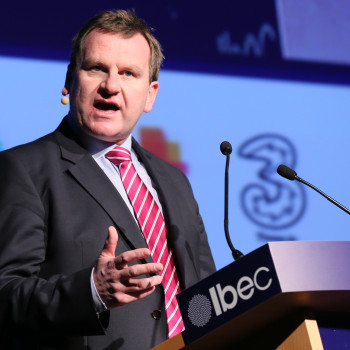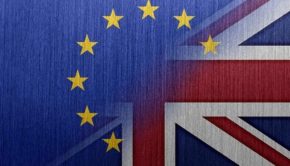Brexit would send us into ‘unchartered and treacherous waters’, says Ibec

Growth outlook remains positive, but Ibec believes there is no scope for complacency, with Brexit topping the threat list as economy faces into uncertain few months
30 March 2016
Economic growth of 4.6% is predicted for this year and 3.9% in 2017, according to Ibec’s latest Quarterly Economic Outlook. Despite this positive news, the business group cautions that the threat of the UK leaving the EU, along with other economic headwinds, means the business environment will be less benign and increasingly uncertain over the coming months.
At a time of heightened external risks, we need to do all within our control to ensure the Irish recovery remains on course, says Ibec. This requires a relentless focus on competitiveness to ensure we can compete effectively with competitor economies.
According to Ibec CEO Danny McCoy: “A UK exit would send Ireland, Britain and Europe into uncharted and treacherous waters. The value of sterling has already fallen significantly, a vote to leave would prompt a further significant depreciation, heaping pressure on businesses trading with the UK. This is in addition to the countless other risks that would arise during and after the period of a negotiated exit. A slowdown in Chinese growth adds to the uncertain international outlook.”
McCoy says the UK’s continued membership of the EU “is of overwhelming strategic importance to Ireland and Irish business” yet the polls suggest a tight vote. He added that the economy needs to stay flexible and that “many new pay claims go far beyond what is realistic and affordable. There can be no return to bubble-economy wage inflation or spiralling relativity pay claims.”
The Quarterly Economic Outlook sets out a range of key risks that Brexit is likely to pose to the Irish economy:
- Exchange rate: This is the most immediate risk. In the aftermath of a possible Brexit the sterling/euro exchange rate is likely to move toward or above parity. This would leave Irish firms selling into the UK market 30% less competitive by June than they were in January through exchange rate movements alone.
- Trade: Any new UK-EU arrangements may undermine free trade. An agreement would take at least two years, but is likely to take much longer. This would bring a level of uncertainty for Irish firms exporting to Britain in the short term impacting on employment, investment and export plans. The risk to trade flows has been underestimated because of the very significant knock on impact that changing investment patterns could have on trade. Ireland’s investment-friendly business model is particularly exposed.
- Investment: There are potential opportunities for Ireland from a Brexit. UK-based corporates and financial sector firms will need a home within the European single market. Dublin may be in a prime position to benefit. However, Brexit would also mean that the UK would no longer be subject to state aid rules when competing for FDI or encouraging indigenous business. The UK government might introduce enhanced business and investment supports in order to prevent capital flight and attract FDI.
- Regulator divergence: Firms operating within both the EU and UK markets would also have to deal with the prospect of regulatory divergence over the years ahead. For services companies operating in both jurisdictions the impacts are potentially greater as it is unlikely the UK would have to abide by common standards in their domestic services market.
AT A GLANCE: Key points from Ibec’s quarterly assessment of the economy include:
Growth: GDP growth is expected to slow to 4.6% in 2016, down from 7.8% last year, due to growing uncertainty surrounding the global economy and a potential Brexit.
Employment: Should grow by 2.1% in 2016 creating 40,000 additional jobs.
Consumption: Continued improvements in the labour market should see consumer spending rise by 4.1% in 2016, up from 3.5% growth last year.
Inflation: Prices are still only at 2008 levels, and will only experience a modest recovery this year with expected inflation of 0.5%.
Debt: While the government debt to GDP ratio is falling rapidly, Irish households still remain heavily indebted with the second highest debt to disposable income ratio in the EU.



 Print
Print




Fans 0
Followers